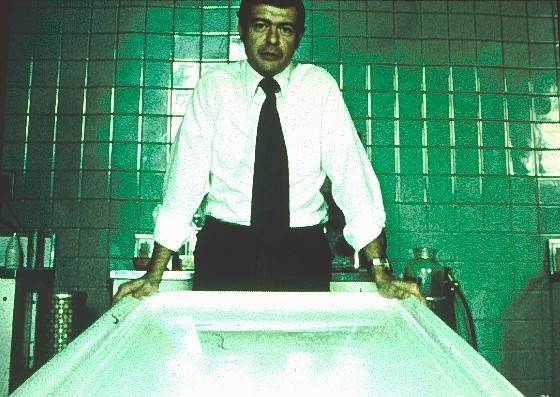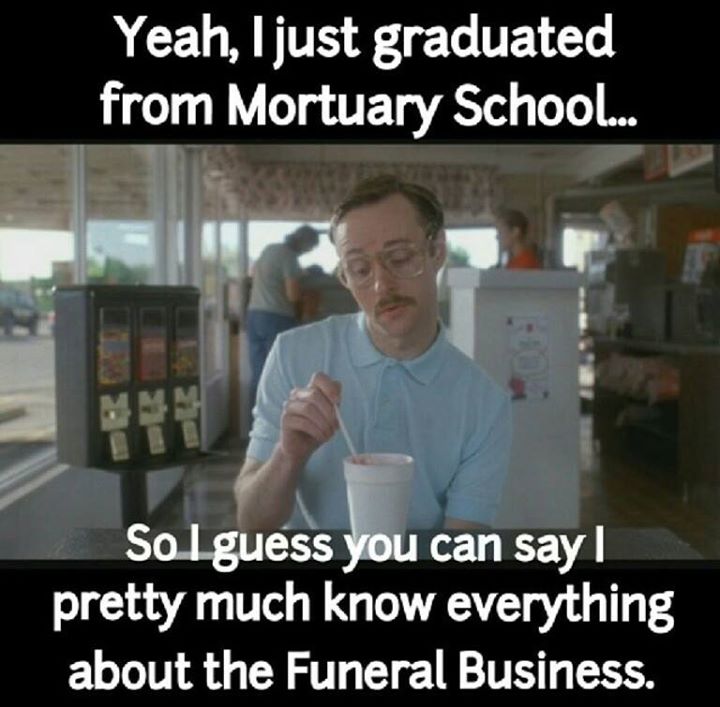10 Marks of a Good Funeral Director
Over the past couple days I’ve been thinking about the question “what makes a good funeral director?” I wrote down 50 plus characteristics. Then I tried to find 10 that I thought were more essential than the others. Below are those 10.
But, these 10 “essentials” are very much opinion. In reality, the answers are quite relative … relative to a funeral director’s demographic, relative to funeral directors cultural expectations and relative to the funeral director’s personality.
With that in mind, let me be the first to say that this list is horribly inadequate. Nevertheless, here are 10 marks of a good funeral director.
1. Emotional Capital:
Funeral directors are paid to be the stable minds in the midst of unstable souls. We often dwell in the darkness and stare into the void. It takes emotional resiliency to bury a child. It takes emotional capital to bury the mother of three young children. If you don’t have that emotional capital, you’ll go bankrupt.
2. Altruism:
Most of us get our emotional capital by helping others. And although I’ve heard funeral directors say “I’m here to serve” a thousand times, the truth is this: If serving others is the core reason you’re in this industry, if service is your “calling”, you’re doing it right.
3. Continuing Education:
I’ve actually learned a thing or two at continuing education courses. But, I’m not talking about those mandated course hours here. I’m talking about the fact that a good funeral director (like in every field of life) always has a desire to expand their understanding. A good funeral director is alway considering new perspectives and challenging their mind to think outside the proverbial box.
4. Business Savvy (specifically for managers and owners):
The more money you can save the more of those savings can be passed back to the customer. Too often it is the mismanaged funeral homes that end up having to charge exorbitant amounts of money in order to support their bad business decisions.
5. Good Teachers
You don’t know everything. You will never know everything. You will always need teachers in your life.
6. Good co-workers/bosses/employees:
The funeral industry isn’t like the NBA where one player can take over and win the game nearly on their own. The funeral industry is more like the NFL. Sure, there are franchise players, but it’s much more of a team sport. And if you’re playing on a bad team, it’s really hard to do your job well. But, if you’re on the right team, your gifts can shine.
7. Internal Locus of control.
“Internal locus of control” is a more technical way of saying “a person with a high sense of personal responsibility.” This business moves too fast for us to always be dependent on our bosses. And at time, this business most so slow that you’ve got to look for things to be do. The blame game doesn’t work in this industry.
8. Empathy and sympathy.
Imagine being at the bottom of a deep, dark hole. Peer up to the top of the hole and you might see some of your friends and family waiting for you, offering words of support and encouragement. This is sympathy; they want to help you out of the pit you have found yourself in. This can assist, but not as much as the person who is standing beside you; the person who is in that hole with you and can see the world from your perspective; this is empathy. — Dr Nicola Davies
There are times (at funerals especially) when all we can give is sympathy. When it’s outside of our ability to fully empathize with a person’s situation. After all, the person laying in the casket isn’t my father. This isn’t my daughter. This isn’t my family.
And that’s our job. You pay us to be directors. And we couldn’t handle much more. We have to maintain a certain level of objectivity because there’s only so much pain, grief and heartache we can share until we too start to crash … burn out.
But, there’s other times when you can’t help but be drawn into the narrative, so that you enter the narrative and become a character in the story. Not just a director, but an actual character in the drama of life and death.
Knowing the difference between empathy and sympathy and having the ability of to use both is what can separate an average funeral director from a good one.
9. Integrity.
Integrity is doing the right thing when nobody is looking. The funeral industry is full of closed doors; and many of our jobs are performed behind closed doors. A good funeral directors is respectful in public and in private.
10. Honesty.
Honesty in the funeral industry looks something like this: admitting our mistakes when we’re wrong, doing our best to communicate truthfully to our customers and our co-workers and making sure we aren’t exploiting anyone.
*****
This “list” is missing something … your perspective. What do you think characterizes a “good funeral director”?


